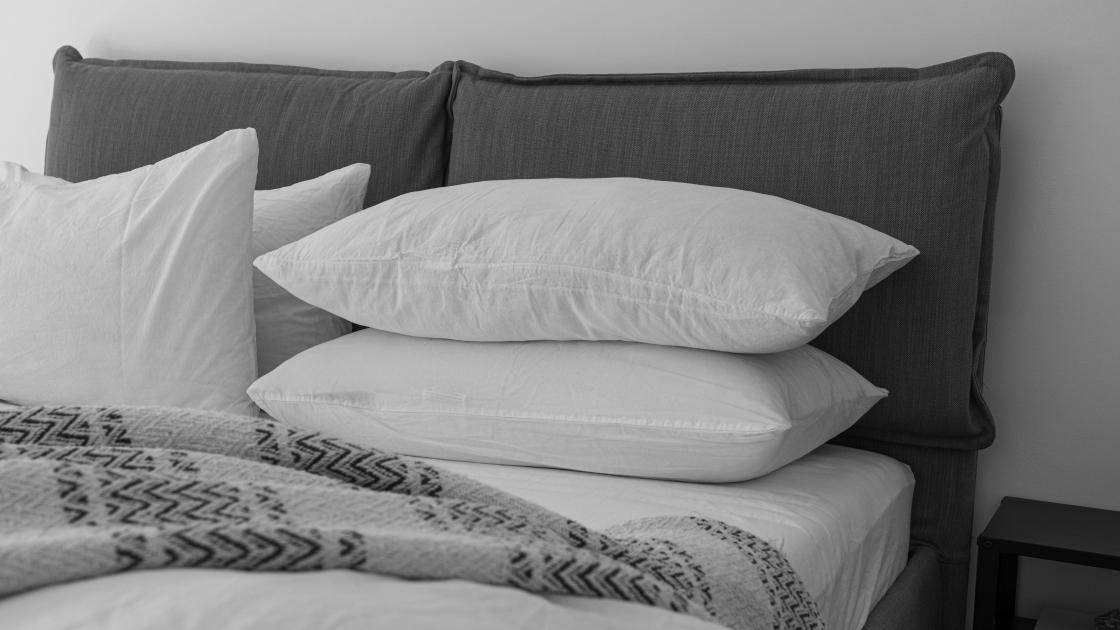
Sleep hygiene
How to help manage sleep problems with Alzheimer's
Sleep is a vital part to everyone’s health, but for those with dementia, it’s often tougher to get the seven to nine hours that adults need every night. Not only with awakenings become more frequent during the night, but falling asleep can be much more difficult as well. Here are some habits to help ensure a better night’s sleep:
During the day
- Reduce, or eliminate caffeine intake (coffee, tea, soda, energy drinks, chocolate, diet pills, some over the counter supplements, prescription and non-prescription medications that contain caffeine).
- Limit caffeinated beverages to no more than three cups up to 10 a.m. each day and do not use caffeine after noon.
- Avoid daytime naps.
- Expose yourself to sunlight (the brightest light) each day by walking outside, sitting by a window, or using a light box.
-
Exercise daily, but not within four hours of going to bed.
Before bedtime
- Reduce or eliminate nicotine use, especially in the evening (tobacco, some e-cigarettes).
- Avoid alcohol use in the evening or at bedtime. Alcohol may make you sleepy, but it interferes with deep restful sleep later in the night.
- Avoid eating a heavy meal within four hours of bedtime, but do not go to bed hungry. Eating a light snack in the evening before bedtime is OK.
- Avoid drinking liquids within two hours of bedtime.
- Set a regular sleep schedule by going to bed and awakening at the same time each day, including weekends.

Print it out
Download this printable sheet with helpful information about sleep, specifically for those with dementia. To see other materials from the Smith Alzheimer's Center, visit our materials hub.
Nighttime agitations
Waking up in the middle of the night can affect everyone in the home. If a person with dementia wakes up during the night, try to address their source of discomfort. Staying calm and not arguing is important — help guide them back to sleep, but don’t force them.
Caregiver’s sleep and energy is just as important. If your sleep is constantly disrupted, talk to a clinician for help. Consider, if possible, having a family member or friend provide support for a night as well.
Studies have shown that sleep and dementia have intertwined effects. Poor sleep quality can worsen dementia symptoms, and dementia can disrupt sleep patterns.

A focused setting for better sleep
An environment where distractions are minimal and stimulations are rare helps someone with dementia fall asleep more easily and lessens the chance of waking in the middle of the night.
- Put aside concerns or worries and relax before going to bed. Practice relaxation techniques such as progressive muscle relaxation, deep breathing, or guided imagery. Make a list and set a time during the day to resolve concerns or issues to reduce evening anxiety. Engage in relaxing activities one hour before bed time such as a warn bath or light reading.
- Keep the bedroom quiet, cool (not cold), and dark. Avoid exposure to bright lights such as television, computer or other electronic screens when going to sleep.
- Use the bedroom for sex and sleep only.
- Avoid having pets in the bedroom as their activity may interfere with sleep.
Looking for more?
Here are six more tips from the National Institute on Aging to help develop a better sleep routine.

Relaxation scripts
Try these guided recordings from Dartmouth to help soothe restlessness or develop a better sleep routine.

Want to learn more?
A lack of sleep can cause or exacerbate a multitude of issues, not just those related to Alzheimer's and dementia. Here are six helpful tips from the National Institute on Aging on managing sleep problems in Alzheimer's, as well as a link to the accompanied infographic in full.
The National Sleep Foundation also has a number of resources that may be helpful, and provide a broader perspective on sleep health.
